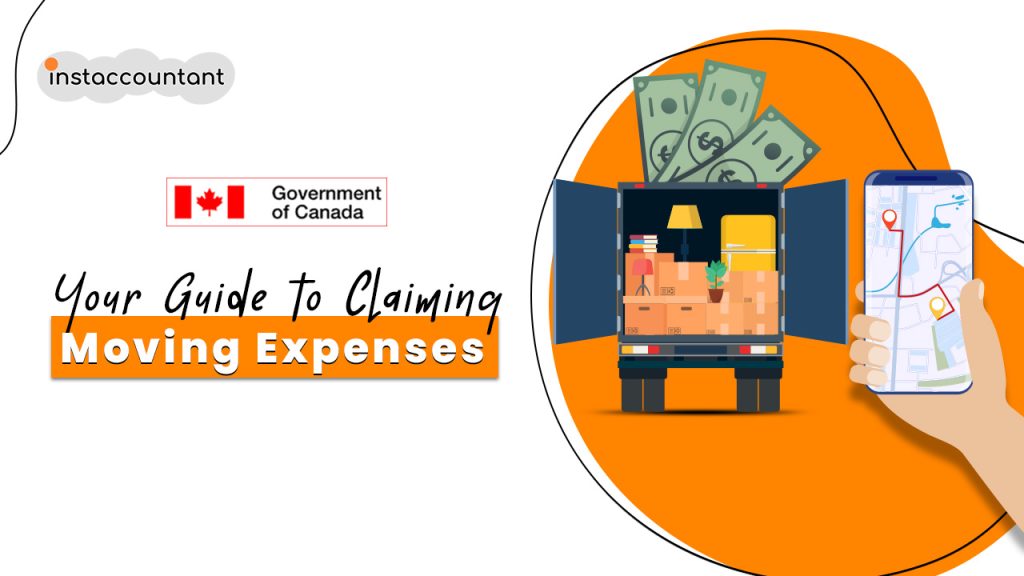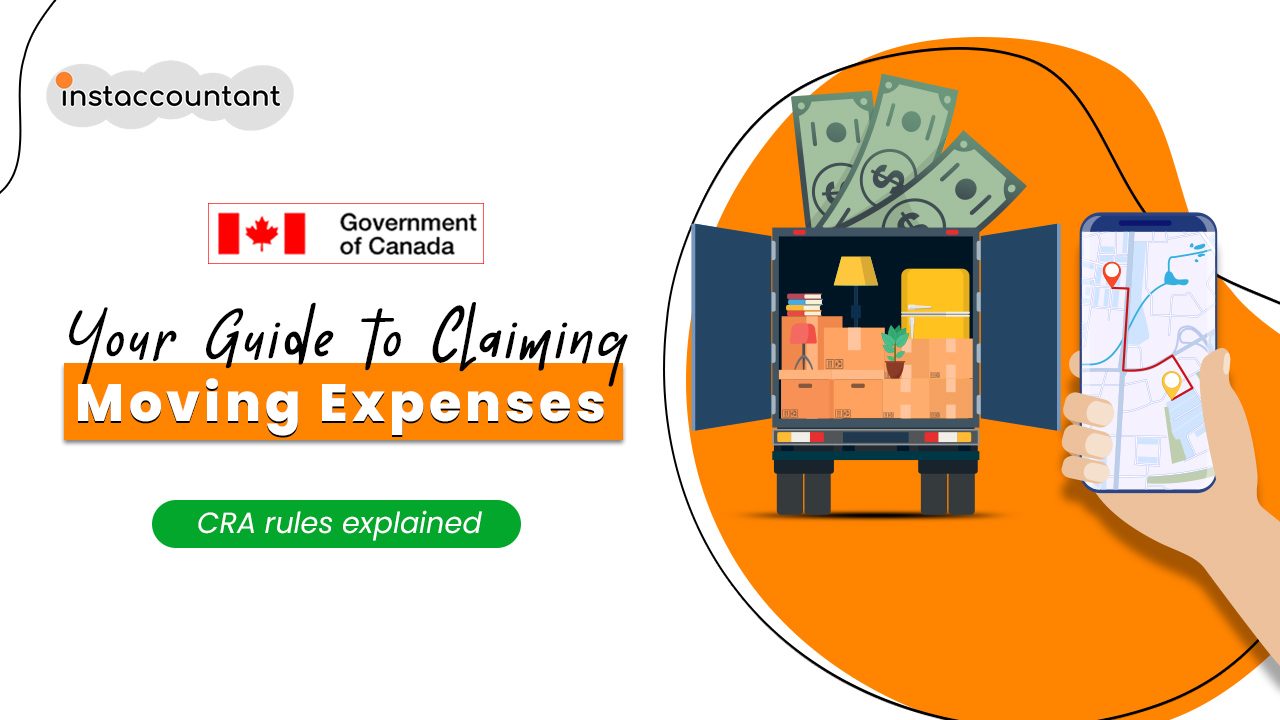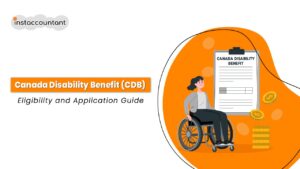Moving to a new place can be exciting, but also expensive. Fortunately, you might be able to save some money on your taxes by deducting your moving expenses. This is a great way to reduce your taxable income and get a bigger refund. However, not everyone qualifies for moving expenses deduction, so you need to understand the rules and criteria set by the Canada Revenue Agency (CRA) before you claim.

Who is Eligible for Moving Expenses Deduction?
You can claim moving expenses if you meet both of the following conditions:
- You moved to work, run a business, or study full-time at a post-secondary institution in a new location.
- Your new home is at least 40 kilometers closer to your new work or school than your old home.
- You earned income at your new location in the same year or the following year of the move.
- You filed or will file an income tax return for the year of the move.
The first condition means that you cannot claim moving expenses if you moved for personal reasons, such as getting married, retiring, or buying a vacation home. The second condition is based on the shortest public route between your old and new homes, not the actual distance you drive. For example, if your old home was 50 kilometers away from your new work or school, and your new home is 10 kilometers away, then you meet this condition because you shortened the distance by 40 kilometers.
To claim these expenses, you need to keep receipts and records of all the costs that you incurred during your move. You can find more information on the eligibility requirements and how to calculate your moving expenses on the CRA website.
What Can be Claimed as Moving Expenses?
If you are eligible to claim moving expenses, you can deduct the following types of costs from your income:
- Transportation and storage costs for your household items, such as hiring movers or renting a storage unit.
- Travel expenses for yourself and your family members, such as gas, meals, and accommodation.
- Temporary living expenses for up to 15 days near your old or new home, such as hotel bills and restaurant meals.
- Costs of cancelling a lease or selling your old home, such as legal fees, real estate commissions, and mortgage penalties.
- Costs of buying or renting a new home, such as legal fees, land transfer taxes, and security deposits.
However, you cannot deduct any expenses that are reimbursed by your employer or another party. You also cannot deduct any expenses that are not related to your move, such as:
- Expenses for work done to make your old residence more saleable.
- Expenses for renovations or repairs to your new residence.
- Expenses for house-hunting trips or job-search trips before or after your move.
- Expenses for meals and entertainment.
Claiming Moving Expenses Deduction as a Student
If you are a full-time student who moved to a new location for your studies, you may be eligible to claim moving expenses as a tax deduction. This can help you reduce your taxable income and save money on your taxes. However, there are some rules and conditions that you need to follow to claim this deduction. Here are some tips on how to claim moving expenses for maximum tax benefit as a full-time student.
Who is a Full-Time Student?
According to the Canada Revenue Agency (CRA), you are considered a full-time student if:
- You regularly attend a college, university, or other educational institution.
- During a particular semester, you are taking at least 60% of the usual course load for the program in which you are enrolled.
You can only deduct moving expenses from the parts of your scholarships, bursaries, fellowships, prizes, and grants that are required to be included in your income. This means that if your scholarships, bursaries, fellowships, prizes, and grants are tax-free, you cannot claim moving expenses as a deduction.
Moving Expenses To or From Canada
If you want to move to or from Canada, there are some additional rules that you need to follow. Generally, you can only claim moving expenses if you move within Canada. However, there are some exceptions if:
- You are a student who is enrolled in a full-time program at a post-secondary institution in another country, and you are considered a resident of Canada for tax purposes.
- You are a resident of Canada for tax purposes who moves from one country to another country (not including Canada) to work or run a business.
In these cases, you can claim moving expenses as long as you meet the other criteria mentioned above. However, there are some limitations on what expenses you can claim.
For example, if you move to Canada, you can only claim transportation and storage costs for your household items that were moved from a place in Canada where you ordinarily resided before the move. You cannot claim these costs for items that were moved from another country.
Similarly, if you move from Canada, you can only claim transportation and storage costs for your household items that were moved to a place in Canada where you ordinarily reside after the move. You cannot claim these costs for items that were moved to another country.
You also cannot claim travel expenses for yourself and your family members if you move from Canada. However, if you move to Canada, you can claim travel expenses for one trip per person from the place where you ordinarily resided before the move.
You cannot claim temporary living expenses, cost of cancelling a lease or selling your old home, cost of buying or renting a new home, legal fees and land transfer taxes, or incidental costs if you move to or from Canada. These expenses are only deductible if you move within Canada.
Moving Expenses Between Two Locations Outside of Canada
If you are a factual or deemed resident of Canada, you may also be able to claim moving expenses for a move between two locations outside of Canada. This means that you have to maintain your residential ties with Canada while living abroad. You also have to meet the same conditions and requirements as if you were moving within Canada.
For example, if you are a Canadian citizen who works for a Canadian company in France, and you move to another location in France for the same employer, you may be able to deduct your moving expenses from your Canadian income tax.
How Canadians Claim Moving Expenses on Tax Return
If you have moved and established a new home to work or run a business at a new location, you can deduct eligible moving expenses from the employment or self-employment income you earned at your new work location. You cannot deduct moving expenses from any other type of income, such as investment income. You must also report any reimbursement or allowance you received from your employer as income.
To claim moving expenses on your tax return, you need to complete Form T1-M, Moving Expenses Deduction (claim on line 21900), and attach it to your income tax return. You also need to keep all your receipts and documents to support your claim in case the CRA asks for them.
On Form T1-M, you need to enter the details of your move, such as the date, the distance, and the reason for moving. You also need to enter the amount of income that you earned at your new work or school location and the amount of moving expenses that you paid.
The amount of moving expenses that you can deduct is limited by the amount of income that you earned at your new location. For example, if you earned $10,000 at your new job and paid $8,000 for moving expenses, you can deduct $8,000 from your income. However, if you earned $10,000 at your new job and paid $12,000 for moving expenses, you can only deduct $10,000 from your income.
If you have moving expenses that exceed your income at your new location, you can carry forward the excess amount and deduct it from your income in future years. For example, if you earned $10,000 at your new job and paid $12,000 for moving expenses in 2024, you can deduct $10,000 in 2024 and carry forward $2,000 to 2025. If you earn $15,000 at your new job in 2025, you can deduct the remaining $2,000 from your income in 2025.
You need to keep all the receipts and documents that support your moving expenses claim in case the CRA asks for them later. You don’t need to send them with your tax return, but you need to have them ready if the CRA requests them.
How to Maximize Your Tax Return for Moving Expenses
Here are some tips to help you get the most out of your tax deduction for moving expenses deduction:
- Plan ahead and keep track of all your moving expenses. Keep a log of all the receipts and invoices that you receive and organize them by category.
- Compare different options for transportation and storage and choose the most reasonable and economical one. For example, compare the cost of hiring movers versus renting a truck and doing it yourself.
- Claim all the eligible expenses that apply to your situation. Don’t forget to include any fees or taxes that are part of your moving costs.
- If possible, time your move so that it coincides with a period of high income at your new location. This will allow you to deduct more of your moving expenses from your income.
- If you have unused moving expenses that you can carry forward to future years, remember to claim them on your next tax return.
Conclusion
Moving can be stressful and costly, but it can also be an opportunity to save money on your taxes. By claiming all the moving expenses that you are entitled to, you can reduce your taxable income and keep more of your hard-earned money. Make sure you follow the CRA rules and requirements and keep track of your receipts. If you need more information or assistance with your tax return, contact us today and we will be happy to help.




